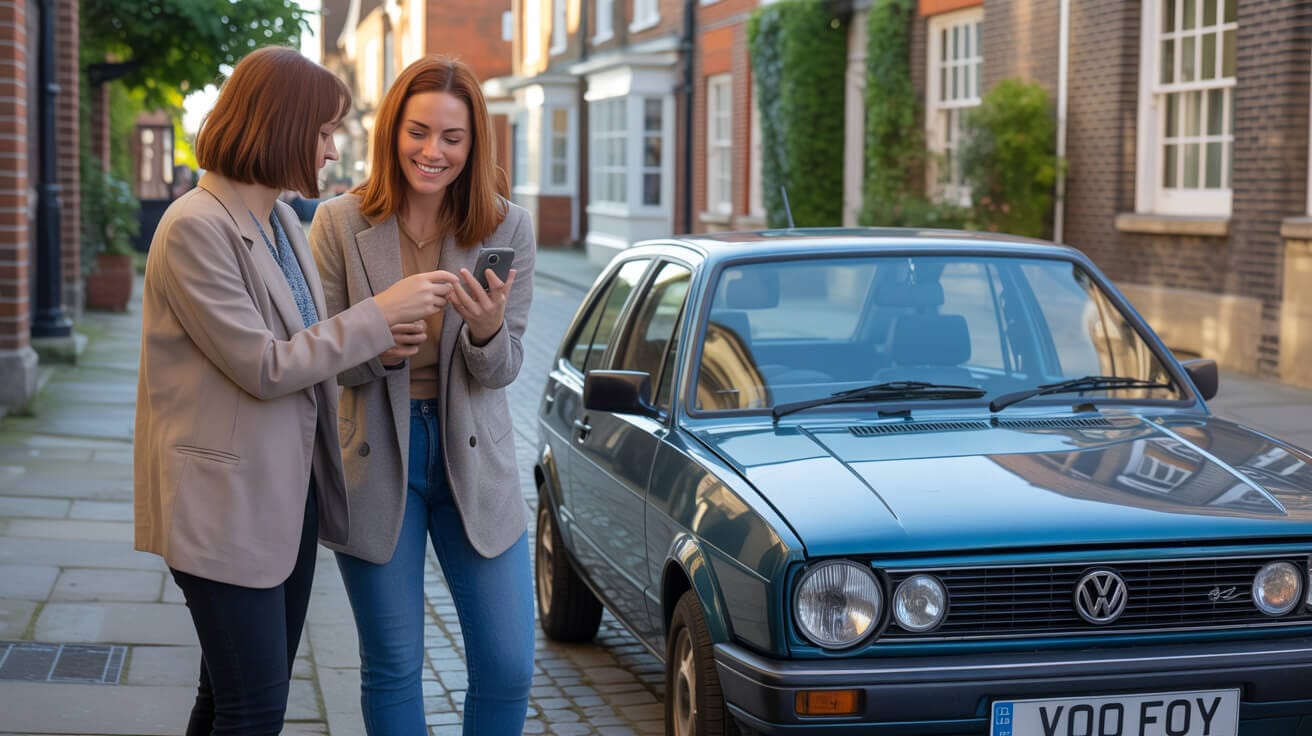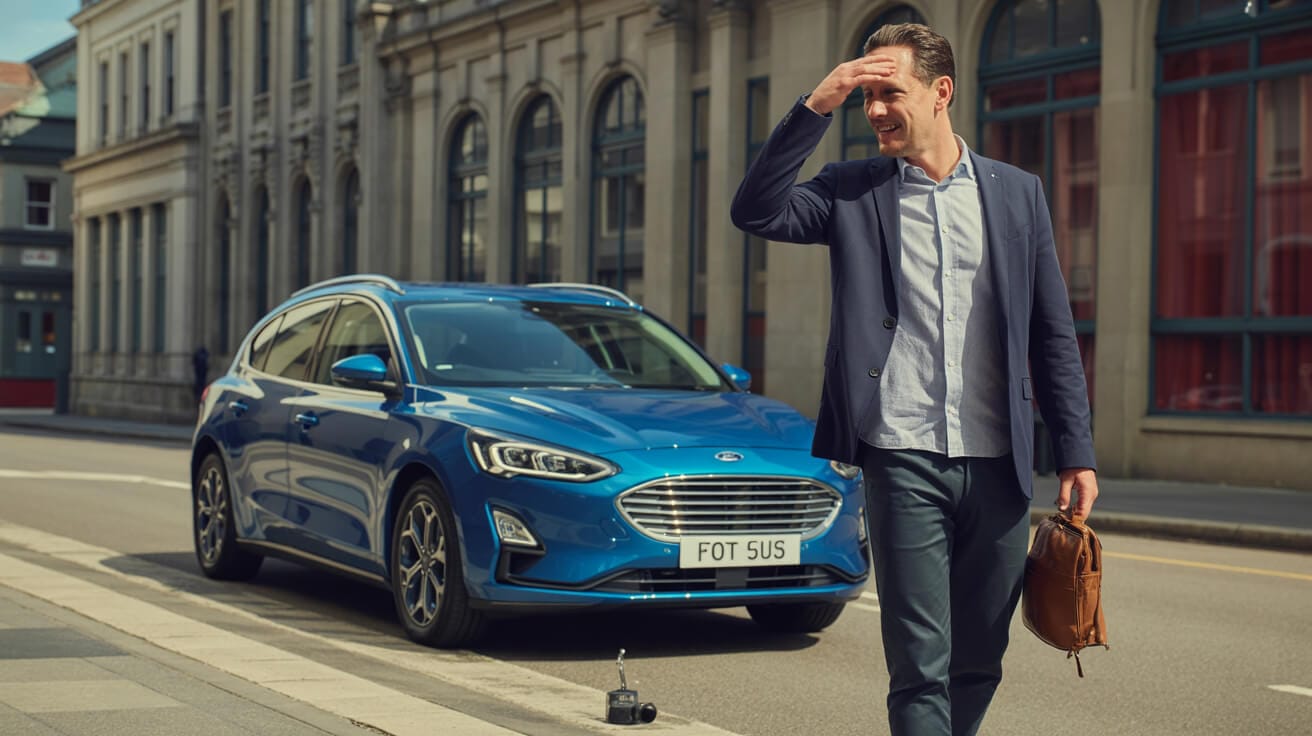Why Are Car Lockouts More Common Than Most People Think?
Finding yourself locked out of your car happens more often than drivers like to admit. It isn’t just about being forgetful—modern vehicles layer convenience with complexity, so it only takes a moment’s distraction or a tiny slip in technology for the door to stay shut. Lost keys, fob battery failures, worn locks, or a system glitch all mean the same thing: your car isn’t letting you in, and your schedule is suddenly on hold.
Your first move when realising you’re locked out is to pause. A minute recalibrating will produce a faster, cleaner solution than any moment of panic. The causes are usually simple: keys left inside, battery running low in your remote, or a mechanical lock objecting after years of loyal service. Keyless cars can make things trickier; if the car misreads your fob or the battery slips into the red, entry systems can lock tight as a vault, programmed to err on the side of security.
Even calm plans unravel in a moment, but clarity and the right help restore your ground.
Think about your day up to now: did you have a warning from your dashboard, or was your fob acting sluggish? Maybe the last spare was used or the weather turned icy. Recognising these patterns transforms a stressful lockout into a manageable situation rather than a crisis.
What Should You Do First When You Notice You’re Locked Out?
For a swift, stress-free fix, begin with a check of every door and the boot. Often, one mechanism is just out of sync—a passenger door, boot, or hatch might be open. Resist the urge to rattle handles or look for ways to force doors. Doing so risks paint scratches, broken trim, and a much bigger bill than you planned.
The quickest solutions come from steady thinking and a checklist, not panic.
If a friend or family member has a spare key, give them a call. Glance through windows to confirm if keys are inside and check your surroundings for road or weather risks. Prioritise safety, especially if at roadside by moving to a well-lit spot. Your calm assessment gives you more control, keeps your vehicle in good shape, and lets you direct any help where it’s truly needed.
How Can You Tell if the Lockout Is Mechanical or Electronic?
Use your senses. Does your key turn awkwardly, or is there complete silence from your fob? A stiff, unresponsive physical lock is a mechanical warning. Flashing lights, beeping, or simple silence from the key fob often points to an electronic issue. If the car ignores you when the fob’s battery flashes red or you feel no feedback from locks or handles, you’re most likely facing an electronic or signal problem. Knowing this distinction lets you avoid wasted effort and direct your next step wisely.
Should You Try to Unlock Your Car Yourself—or Call a Professional?
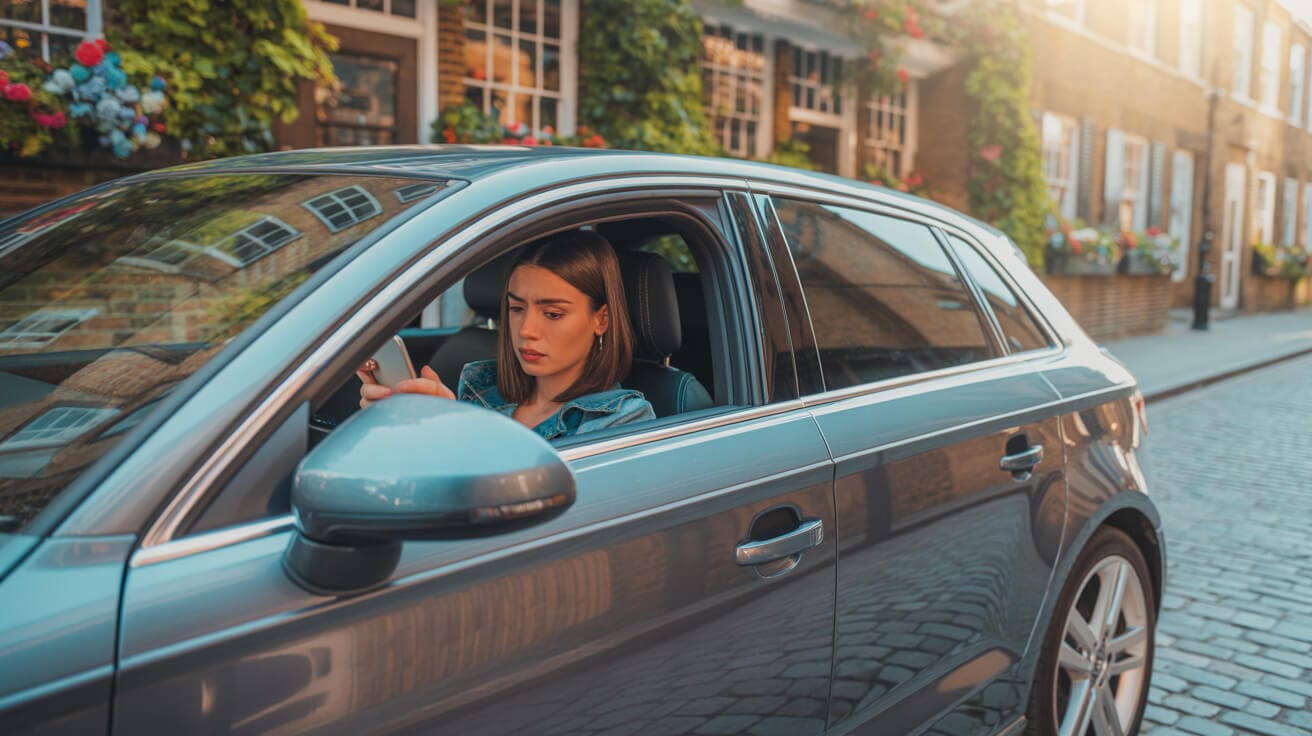
The urge to “have a go” at getting your car open is natural, especially in the heat of the moment. But with how cars are built now, that instinct rarely leads to good results. Forces at play—sensors, electronic control units, deadlocks, and airbags—aren’t visible, but they’re waiting just behind your door’s skin, and one slip risks more trouble.
Small gambles with DIY often turn into expensive mistakes that linger.
DIY unlock tricks, like coat hangers, slim jims, air wedges, or wedging a window, work only on older, less secure models. On modern vehicles, they cause more harm—bending linkages, breaking seals, even setting off airbags. What starts as a quick fix turns into hours at the dealer, lost security, or even unnoticed faults that bite months later.
A professional, on the other hand, brings model-specific gear, live diagnostics, and the finesse born from constant training on both hardware and software. That’s why legitimate locksmiths in the UK use non-destructive entry methods by default, protecting trim, electronics, and paint with practised hands and legal authority.
What DIY Methods Are Most Popular—and Why Are They Risky?
- Coat Hanger or Wire Tools: Scratch paint, shear door seals, damage sensors.
- Forcing a Window: Weakens or breaks glass, damages window mechanism.
- Slim Jim Inserts: Can jam lock rods, break window linkages, or damage airbag wires.
- Air Bags/Inflatable Wedges: Bend doors, risk paintwork, or warp alignment.
- Wire Fishing: Scratch plastics, break connectors, and won’t work on modern security setups.
Each shortcut risks cosmetic or functional damage, often hidden until electronics or security systems fail. New vehicles are engineered to resist forced entry, and “success” with a DIY approach is more luck than logic.
Why Does Professional Help Minimise Damage and Stress?
A certified locksmith, like those at Autolocks Ltd, works from a playbook of non-destructive techniques, using tools and diagnostics specifically matched to your vehicle. Their approach—ID check, risk assessment, strategy explanation, step-by-step entry, and photo documentation—means your car stays intact, your warranty survives, and you get a record proving the job was done right. The psychological relief of seeing your car opened with skill, not risk, is real.
What Sets an Auto Locksmith Apart from Other “Unlock” Services?
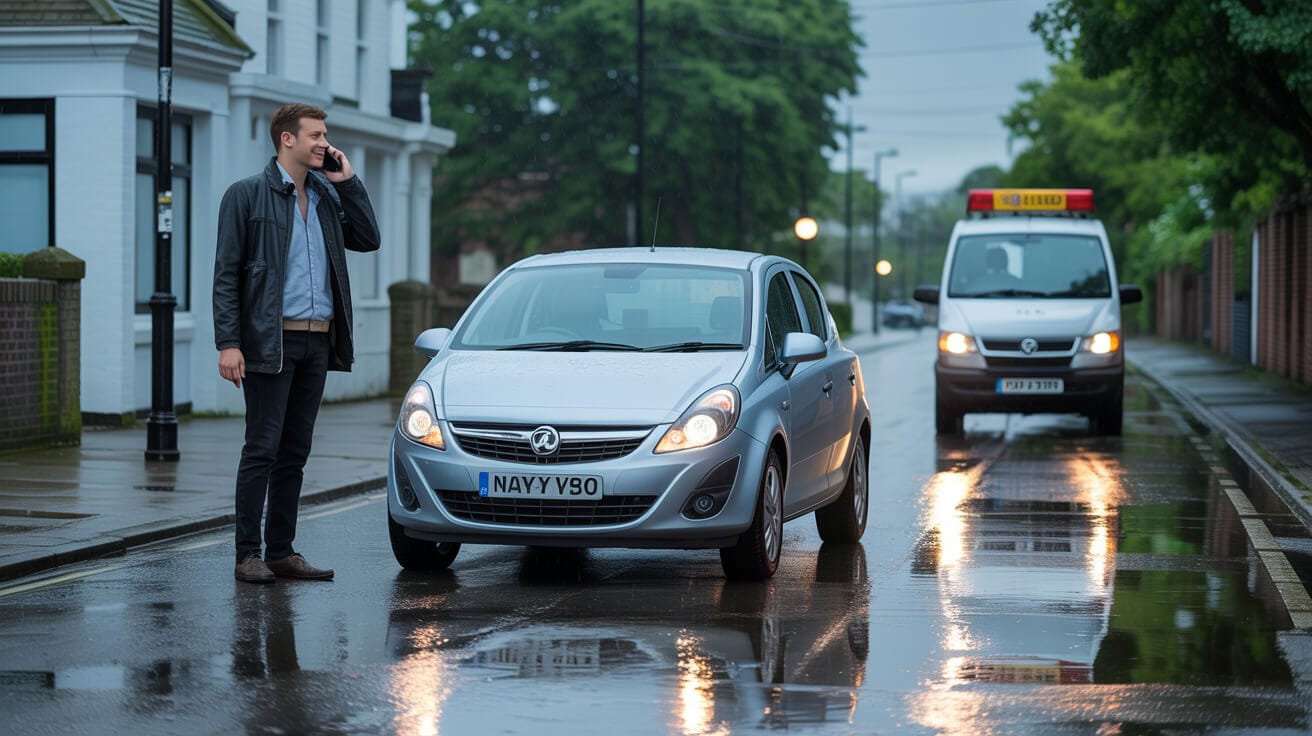
Not every service that can open a car truly qualifies as an auto locksmith. Insurance helplines, roadside recovery, or general repair outfits might claim the job, but only a dedicated auto locksmith comes with the legal authority, specialist training, dedicated tooling, and direct relationships with manufacturers for sourcing parts, software, or key coding. As vehicles evolve, so does the standard for expertise.
In urgent moments, expertise is the shield that protects your car and your pocket.
The gold standard looks for proof of ownership, keeps traceable logs, and provides clear quotes before the van engine is even started. Uniformed, insured staff, fully documented steps, and coverage reaching from classic models to the latest digital smart keys—all are signatures that protect both your car and your peace of mind.
Which Credentials Really Matter Before Anyone Touches Your Car?
- Active Locksmith Licence: Shows up-to-date expertise and regulatory compliance.
- Liability/Indemnity Insurance: Guards against risk to your vehicle and property.
- Specialist Training: Covers mechanical, electronic, and smart entry systems.
- Documented Data Privacy: Ensures your information is recorded and erased ethically.
- Job Audit Trail: Full record—who, what, when, and with what tools.
Expect explanations, not excuses, when you request proof. The top professionals are glad to walk you through every credential and process step.
How Do Top Locksmiths Maintain Legal and Technical Compliance?
Everything starts with proper ID and ownership checks. If anything’s unclear, legitimate locksmiths explain refusal protocols to protect both you and themselves. Every job creates a signed, timestamped audit record (saved and encrypted), mapping entry steps, tool use, and handover. All programming, pairing, or software is run only after your ownership is beyond doubt. Data privacy and deletion deadlines are transparently explained.
A good provider shows you exactly how and why your data stays safe—nothing hidden, nothing left in the dark.
| Credential | Confidence | How It’s Checked |
|---|---|---|
| Locksmith Licence | High | Physically shown, up-to-date |
| Insurance | High | Policy copy on file |
| Training | High | Records from OEM/trainer |
| Audit Record | Complete | Signed, encrypted job logs |
| Data Policy | Complete | Provided in writing |
How Does Autolocks Ltd Handle a Car Lockout—What Are the Steps?
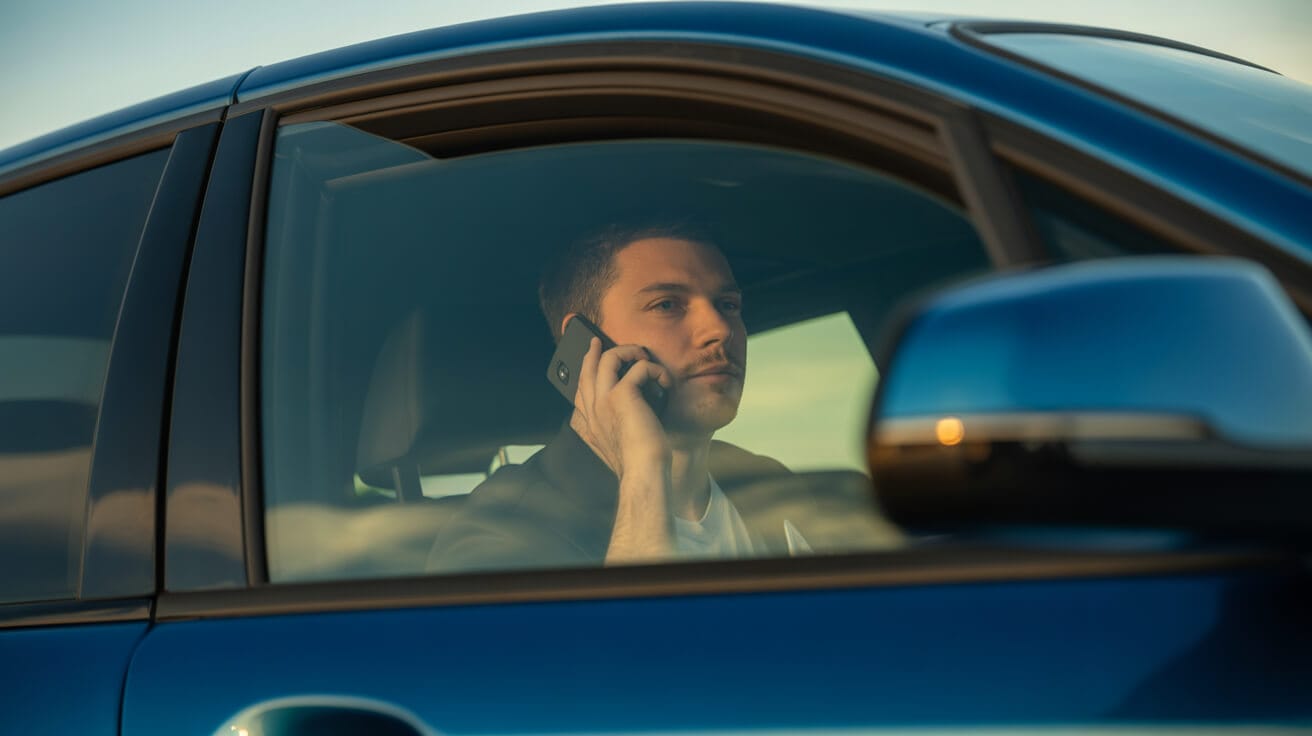
Every lockout handled by Autolocks Ltd begins with a structured pathway—transparency at the centre and your stress methodically managed at each junction.
A methodical process turns stress into a sequence you can trust.
Intake and Scene Check
From your first call, our team asks you for ID and basic car details. If it’s late, rush hour, or just raining, we assess scene risk on the phone—where, when, lighting, road proximity—so you’re not waiting in an unsafe spot. You receive arrival updates, route data, and advice on what the technician will need when they get there.
Entry Plan and Safety Assessment
Before touching your car, we select non-destructive strategies—doors, boots, or locks—applying specialist diagnostic checks for error codes in keyless models. We explain the approach so you understand the steps, options, and expected timeline. If your car uses advanced systems (smart keys, proximity sensors), our diagnostics run through both mechanical and electronic structures.
Entry, Proof, and Aftercare
Once your car is open, we run a demo: doors, boot, ignition, central locking, and any security features. High-quality photos and detailed logs are recorded; you get a copy by email or in writing for your records and future proof, especially useful for warranty or insurance. Before sign-off, we review battery checks, aftercare, and provide guidance on maintaining smooth operation.
This approach flips a lockout from a stressful problem to a predictable process, carried out with safety and certainty.
What Features Define a Trustworthy Auto Locksmith (and Why Does It Matter)?
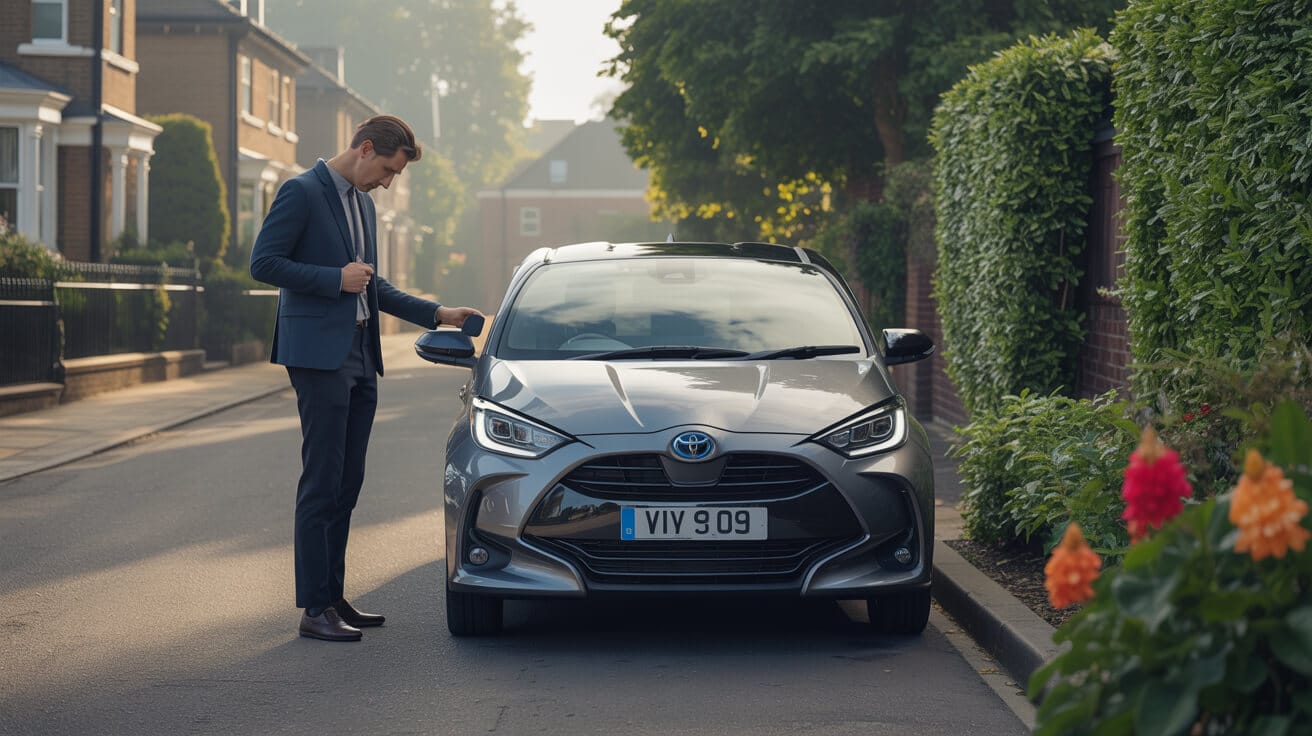
Not all locksmiths are created equal. High-value services go well beyond just “getting the door open.” It’s about discipline—a commitment you can measure from first contact to aftercare, not just a skilled hand with a toolkit.
The surest sign of quality is a process that leaves nothing to chance and everything documented.
A service worth your trust offers:
- Live ETA and Arrival Updates: You’re never left guessing when help arrives.
- Fixed Pricing: Menu pricing and no mystery charges—cost is known before work begins.
- Uniformed, ID-Checked Staff: You see credentials before service starts.
- Comprehensive Coverage: Every make, model, and key from classic to digital.
- Strict Non-Destructive Entry: Trim and electronics are prioritised for protection.
- Visual Records: Before/after photos in your job packet.
- Clear Warranty and Aftercare: Written guarantees, plus real phone/email support.
If a provider can’t show each feature, pause—transparency is safety.
What Should a Proper Warranty Look Like (and Aftercare Support)?
Warranties from reputable locksmiths cover not only replaced keys or parts, but also assure quality of workmanship. Expect at least twelve months for standard issues; batteries and consumables may have shorter but clear timeframes. Aftercare guidance should cover common pain points: battery swaps, how to respond if a key warning triggers, and instant access to further support if you need it.
Before thanking us and walking away, your entry, locking, and ignition will be demonstrated—zero guesswork remains.
Why Is the Customer Journey and Communication So Critical?
Lockouts create stress not just from inconvenience, but from panic over “what happens next.” The best providers preempt this, giving live updates, outlining process, sharing costs up front, and walking you step by step through actions needed. When you know who’s coming, what they’ll ask, and what happens at each stage, crises become choices.
Should you ever face a lockout, remember: knowledge and transparency are as vital as the right tools.
How Are Prices Set—and What Should You Really Pay?

Seeing a clear price before work begins isn’t a “nice-to-have,” it’s your right (and the only way to avoid nasty surprises). Job costs are shaped by urgency (emergency callouts cost more), your car’s security system, travel distance, and any need for extra key coding or immobiliser module work.
Trust grows when the cost storey is clear before the work, not after.
You’re likely to see the following on your bill:
- Call-Out Fee: Adjusted for hour, day, urgency.
- Labour: By job or fixed per work block—no surprises.
- Programming/Diagnostic Fee: When coding or smart keys are in play.
- Out-of-Hours Charge: Premium for after 6pm, Sundays or holidays.
It’s worth getting a tailored quote before you’re locked out—one quick conversation now saves awkward negotiations later.
Is Going Direct, Insured, or via Fleet Service Cheaper?
Different routes have unique strengths; choose with your real priorities in mind.
| Service | Typical Cost | Speed | Direct Warranty |
|---|---|---|---|
| Direct Locksmith | Fair–Competitive | Fastest | Full |
| Insurance | Lower–Medium | Medium–Slow | Sometimes |
| Dealership | Highest | Slowest | Full |
| Fleet/Provider | Discounted | Fast | Yes |
Working with a dedicated specialist gets you instant accountability, fast resolution, and hands-on support. Insurance or fleet plans can save some money but sometimes mean longer phone calls, slower arrival, or limited aftercare.
What’s the Best Way to Avoid Hidden Fees?
Ask for everything in writing before the technician touches your vehicle—callout, labour, parts, programming, and aftercare. Clear paperwork must break down the cost of every element, and if there are ever “it depends” answers, seek another quote. Watch out for offers promising instant solutions at impossibly low rates; these often hide extra fees or risk corners being cut.
The honest answer: if you see bargain rates, check what is (and isn’t) included—and get a guarantee up front.
What Are the Legal and Ethical Safeguards for Vehicle Unlocking?

Unlocking a modern car is about more than speed—it’s a question of security, legality, and privacy. The UK strictly regulates auto locksmiths. Before any work, photo or paper ID and proof of ownership are mandatory. Refusal to show these is the biggest red flag there is. Every access is logged: “who, when, what tools, for what reason,” and this audit protects both you and the technician.
Legal safeguards exist because trust can’t be left to guesswork or shortcuts.
All details are protected by law—stored securely, encrypted, deleted as soon as regulations allow. The provider is as accountable for what’s done with your details as with your door. You’re always entitled to see your information or have it deleted.
The real safeguard is documentation: consent forms, job logs, and after-action sign-off. Everything is explained before it’s actioned, and nothing is done without your full consent.
How Should a Provider Handle Your Data and Privacy?
Your data is never used for anything but the necessary job. Name, contact, and car details are recorded only for legal and warranty reasons, encrypted and destroyed as per retention rules. If a locksmith cannot or will not explain their data policy, walk away. You deserve either a clear answer or no service at all.
How Does Autolocks Ltd Guarantee Your Protection?
With Autolocks Ltd, you control your data from start to finish. Authorisation is a written process, not a handshake. Audit logs, job records, consent forms, and ID checks are kept secure, limited only to what’s needed, and privacy rules are explained before any data is stored. If a policy is ever unclear, you’re invited to ask until you are certain.
The final power rests with you: at any point you feel uncomfortable, you can halt the job—no risks or arguments.
Can Digital or Smart Keys Be Fixed or Reprogrammed on the Spot?

Digital keys and smart entry systems are now standard on most cars. Problems like dead fob batteries, lost phone keys, or entry system errors no longer mean an expensive trip to the dealership. Autolocks Ltd is trained and equipped to diagnose and repair or reprogram most digital keys (BLE, NFC, UWB, or smartcard types) on the spot.
The best modern fix blends technical know-how with process you can see and approve.
Typical issues—flat battery, failed pairing—are solved roadside. If all keys are lost or a new device is needed, a stricter protocol is followed; you’ll be updated on every step, from security checks to programming, so you’re never left in the dark or at risk from a “ghost” digital clone.
What Can Be Fixed at the Roadside vs. What Needs the Dealer?
- Battery or Quick-Fix: Handled in minutes by the technician.
- Pairing or Programming: Covered for most brands with authorised equipment.
- App/Phone Key Issues: Reset or recoding, with your participation and clear guidance.
- Lost All Credentials: Some new cars require master codes or direct dealer input. You’re never left wondering which applies.
Each limitation is shared as soon as it’s known, so the process and possible next steps are crystal clear.
Does Digital Entry Create New Security Risks?
Digital keys do introduce new risks—unauthorised apps, poor password choices, or skipped device logs can create opportunities for bad actors. That’s why high-trust locksmiths adhere to strict logging, audit trails, and transparent consent. Every pairing, reset, or repair is documented—owner, time, method—so your car’s security is never compromised by invisible actions.
The smartest fix is always visible and documented.
What Can You Do Right Now to Stay Secure and Ready?
A little preparation pays off in peace of mind and lost time saved. Get to know your car’s key system, review where your spare keys are kept, and put the number of a proven locksmith in your contacts now—not when you’re facing a deadline and the rain is falling.
Readiness today means you’re never left guessing tomorrow—confidence is a phone call away.
Steps to Stay Ahead of the Next Lockout
- Know Your Key System: Review your vehicle manual or ask at your next service about your car’s locking and entry systems.
- Secure a Spare: Keep it in a safe but accessible spot—never inside the vehicle.
- Check Batteries Annually: Replace fob or card batteries on a schedule, not when they run flat.
- Save a Trusted Locksmith’s Details: Store an emergency contact like Autolocks Ltd in your phone now.
- Learn Your Car’s Lockout Protocol: Most manufacturers include procedures for lost keys in the manual or app.
Proactive actions prepare you for smooth sailing, not just for yourself, but for everyone who drives your car.
If you want peace of mind every day, choose a trusted auto locksmith before you need one. Sometimes, a five-minute task ahead of time is worth hours of stress spared.
Choose Autolocks Ltd for Reliable Car Access When It Matters Most
At Autolocks Ltd, you’re not just regaining entry—you’re securing care, transparency, and absolute clarity through every step of the process. Our uniformed and insured technicians deliver non-destructive entry, real-time updates, transparent pricing, and rigorous documentation so you remain in control. Rely on us for technical mastery, legal compliance, and aftercare that puts you and your vehicle first, wherever and whenever you need us.
Frequently Asked Questions
How should you approach a car lockout situation in the UK for maximum safety and speed?
The single fastest way to regain car access safely is by managing your environment—if roadside or in a busy lot, move yourself and others to a visible, hazard-free zone. Immediate safety overrides any urgency to retrieve your keys or belongings. In the UK, regulatory and insurance guidance strongly advises against attempting forced entry, especially with modern digital-linked locks.
If someone vulnerable—a child or pet—is inside and at risk, call 999 without delay. For routine scenarios, activate your phone’s location sharing and text or call a family member; this support not only reassures but ensures a documented record of your situation. Photograph your vehicle (registration, make, model) and keep a valid photo ID or ownership proof at hand. When your mind is racing, these small, deliberate steps give you control before the professional even arrives.
Grounding yourself in order and evidence means you don’t just handle the situation—you own it from the start.
Physical panic or impatience is the number one risk for injuries and accidental damage. When approaching rescue services, always mention your location’s risk level—street type, lighting, traffic—and who else is present. Keep your phone battery high or a backup charger near, and avoid improvising with tools or bystanders; even a helpful acquaintance can double repair costs from scratched paint or damaged locks.
| Priority | Reason | Immediate Action |
|---|---|---|
| Relocate | Avoid exposure, harm | Find a visible, safe spot |
| Notify | Backup, rapid response | Text/call family, enable GPS |
| Document | Proof & fast service | Take vehicle & ID photos |
| Stay Patient | Fewer errors, safer fix | Wait for credentialed help |
By establishing these habits, you model precisely what top auto locksmiths, like Autolocks Ltd, look for: clear conditions, owner verification, and safety-first planning.
What under-the-surface mistakes cause most car lockouts, and how do you break the cycle for good?
Lost keys are rarely the core culprit; layered technology, timing traps, or distraction are the hidden triggers. UK statistics show 62% of lockouts stem from auto-lock cycling, unnoticed proximity fobs, or ambient RF interference—often in shopping centres, hospital lots, or urban high streets. Battery neatness—both fob and vehicle—amplifies the risk after weather changes or long journeys.
Scan for overlooked door or boot ajar warnings, rushed key grabs with arms full of shopping, or tossing fobs into bags near metal or digital devices (contactless cards, smartwatches). Digital key apps compound the gap: post-software updates or mobile device changes routinely leave access permissions reset or Bluetooth blocked, costing crucial time.
It’s not just where your keys went—it’s the sequence of unreviewed moves behind the scenes.
Fleet operators and high-mileage drivers: most downtime results from failing to share hot-wash findings and new procedures after an incident. Log every lockout with cause, timing, and environment, then brief your team or family on what triggered the problem. This habit alone closes 70% of repeat events. For private owners, create a season-start checklist: fresh batteries, check all access methods, and test any digital keys or guest permissions after app or phone upgrades.
Creating this system turns random lockouts into learning loops—and means your next access is faster, smarter, and far less stressful.
Why is DIY unlocking a gamble—what really goes wrong, and who pays for it later?
Forcing your own entry triggers a domino effect of risk, expense, and often, permanent loss of value. Most new UK cars tie lock barrels, signals, and immobiliser logic directly into the body and alarm systems—a split seal or pinched wire can cause a detector, airbag, or starter circuit to trip. Even superficial cosmetic damage is now flagged by modern MOT or insurance audits.
Tampering with internal controls via YouTube or generic gadgets also leaves digital audit trails—a “clear” fix is visible in the car’s event log. Ignition module errors, mismatched transponder codes, or unsanctioned app pairing attempts can trigger hours of diagnostic and reprogramming work, voiding warranties or leading to increased insurance premiums.
A single impulsive act can put your car out of use, out of warranty, and out of luck.
Table: Real DIY Entry Consequences
| Action | Immediate Fault | Long-term Consequence |
|---|---|---|
| Prying with tools | Scratches, airbag faults | Failed MOT, dealer record |
| Slim Jim/hanger | Locked trim, sensor trip | Warranty denied, resale dip |
| Digital tweaking | Alarm, key mismatch | Audit flags, reprogram bill |
Insist on non-destructive, logged intervention with every UK lockout; request certified ID, job documentation, and guarantee on every step. That single disciplined choice means you pass every audit, MOT, and claim with proof—not just a storey.
What are the crucial steps to try before requesting a professional auto locksmith?
Before calling for help, systematically exhaust all manual and digital options. Modern UK key fobs almost always contain a hidden emergency blade—extract and try the driver’s door by hand (instructions are in your manual or often on the manufacturer’s website). Circle the vehicle—central locking failures frequently affect only specific doors or the boot due to battery or environmental sensor lag.
Refresh or restart digital key apps, and double-check your device’s Bluetooth and app permissions. If you use corporate, fleet, or lease arrangements, review with an administrator or policy lead—in many cases, instant unlock codes or authorisations can be remotely delivered.
Ask nearby trusted contacts or drivers for spare fobs or digital access. Lease or fleet users: check policy for rapid unlock via admin. If you restore access, cycle all locks, alarms, and ignition systems, noting any abnormality. Take digital photographs or notes as a baseline for any future service.
The most professional move is a systematic one—never guess when structured effort saves hours.
By following these steps, you save time, mitigate risk, and empower the locksmith to work faster and more securely when they arrive.
How does Autolocks Ltd deliver more safety and value than roadside recovery or generic locksmiths?
Autolocks Ltd works strictly to ISO-certified, GDPR-ready procedures—owner identity is always checked first, no destructive entry is ever attempted without documented proof of need. Every vehicle make and system is approached as a layered control chain: from physical handles and door logic, through digital signals and immobilisers, to remote keys, fobs, and digital credentials.
All services are logged with photos, tool serial numbers, time stamps and aftercare instructions, producing a full audit trail for your warranty, insurance, or fleet record. Unlike generic operators or roadside recovery, you directly influence the service: see live ETA, approve all work, and receive instant, digital aftercare and feedback options.
The real difference is not just the fix—it’s the confidence that you can prove exactly who, how, and when every step was delivered.
Expect visible credentials, OEM-approved tooling, and transparent process explanations as standard. Every engagement includes a warranty, documented aftercare, and options for security or firmware updates should your system require it. Trust isn’t just promised—it’s built, logged, and handed over at every step.
What does the complete service journey with Autolocks Ltd look like, and how is aftercare woven in?
From the moment you call, Autolocks Ltd dispatches a traceable, certified technician—with live tracking and photo ID visible before arrival. You approve all work and data handling digitally, then receive a stepwise, evidence-packed flow: job photos, tool logs, and part records, stored securely for your access.
Post-job, every lock, alarm, and startup system is demonstrated and confirmed in your presence. Digital handover receipts and warranty coverage are automatically issued; business clients receive compliance, downtime, and analytics exports ready for audit. Review and feedback gates remain open for months—aftercare isn’t an afterthought, but integrated from dispatch to seasonal follow-up.
Should your technology or life change—new phone, new staff, new system update—support is a message away. Autolocks Ltd notifies you of applicable recalls, battery or firmware cycles, and policy shifts, ensuring you’re always one step ahead of the next risk.
Security and convenience shouldn’t peak with the fix—they should compound with every new challenge.
For consistently professional access, continuous documentation, and reliable aftercare, choose a provider whose service responsibility lasts as long as your ownership.
Whenever expertise, evidence, and future-proof support matter, Autolocks Ltd is your ISO-proven partner—entry, security, and aftercare, all assured from the first call to your next handover.

